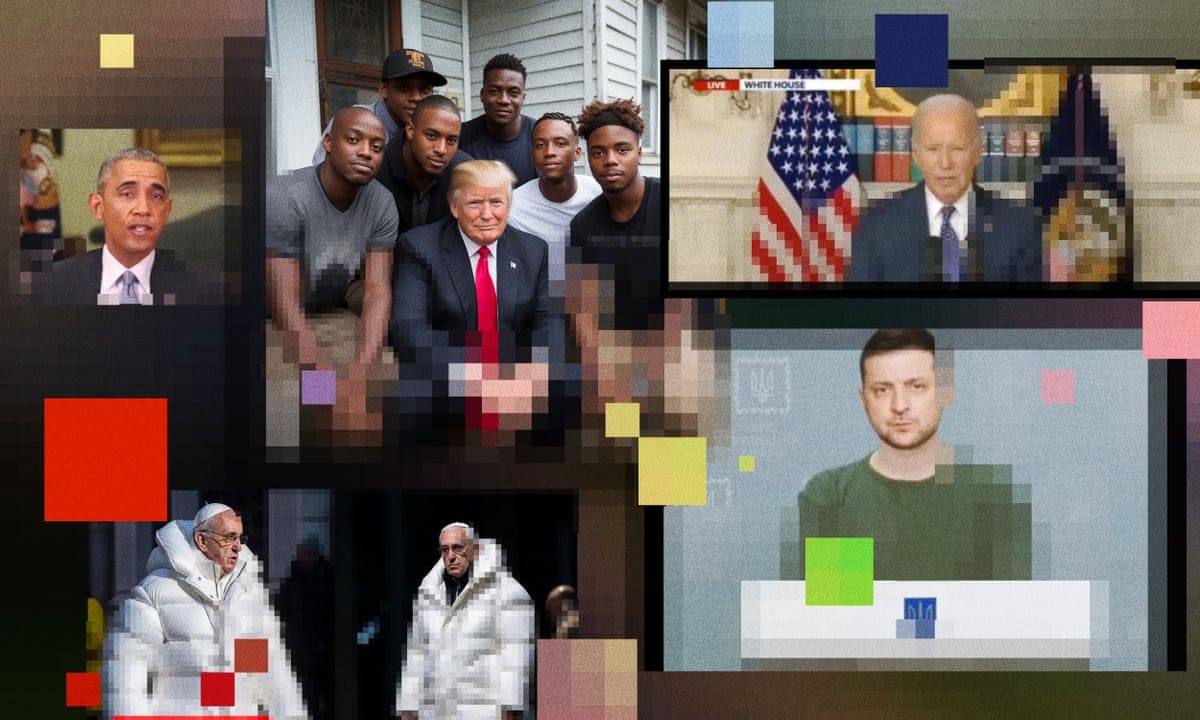As long as the phenomenon of artificially generated or altered content depicting false events has existed in politics, concerns have been raised about its implications for public discourse and democracy since at least 2018. This was demonstrated when a deepfake video surfaced that falsely portrayed former President Obama insulting then-President Trump. Over the years, numerous media outlets have cautioned against potential threats posed by political deepfakes to truth and democratic processes.
Recently in Australia, a member of the Liberal National party shared an AI-generated video featuring Queensland Premier Steven Miles dancing on social media platform TikTok. The video was identified as being created using artificial intelligence. While the signs were clear - blurring facial features and inconsistencies in his pants' movement, among other aspects - there was no official label to indicate its artificial origins. However, Miles likened the occurrence of such deepfakes as a "turning point for our democracy."
This week's incident has reignited anxietinas about political deepfakes and their possible impact on public discourse, truth, and the state of democracy. Although there hasn't been a significant disruption caused by this technology so far, its usage appears to be increasing. In January, an AI-generated voice imitating former Vice President Joe Biden was used in misleading robocalls attempting to sway voters. Shortly after, deepfake videos of Senator Kamala Harris gained traction on social media platforms like TikTok.
However, some individuals are using generative AI for their personal benefit. In the 2020 Indian elections, a minister created altered videos to present himself speaking different languages and capitalized on this technique to expand campaign efforts. Recently, a local Labor councillor in Melbourne generated promotional content featuring music by popular artists across various genres and languages as targeted ads on Facebook.
Despite concerns that might have been premature due to the limited impact of deepfakes just a few years ago, our media landscape has evolved significantly with the emergence of accessible generative AI tools. Some experts believe that 2024, an important election year globally, could mark the first tangible electoral influence of deepfakes.
Professor Mark Andrejevic from a reputable university emphasizes that it's not only about the technology itself but also the broader political culture we are shaping and undermining trust in institutions responsible for distinguishing fact from fiction. He states, "It's not just whether deepfakes can be taken as truth, but how they fit into larger trends of politics becoming more like entertainment while shared realities dissolve."
Although the recent AI-generated video of Steven Miles dancing might appear simplistic and far-fetched, focusing solely on its believability may lead to overlooking underlying concerns. These deepfakes have emerged in an environment where misinformation is rampant, eroding public trust and creating a culture that undermines accountability by making it easier for politicians to dismiss genuine footage as fabrication.
Moreover, there are legal and ethical challenges associated with the term "deepfakes." The name originated from an online username of an individual who gained attention in 2017 by using deepfake technology to superimpose images of female celebrities on explicit content without their consent. Researchers have highlighted that, despite fears surrounding political deepfakes, women are more commonly targeted for harmful uses of this technology.
While it is unlikely that deepfakes alone will lead to an immediate collapse of democracy, they represent symptoms and contributing factors in the decline of public discourse within a weakened media landscape and deteriorating political culture, ultimately resulting in what some experts term "information decay." Although we may not need AI-powered detectives anytime soon to solve these issues, understanding their implications remains crucial.
Read next

Rafael Behr Predicts Starmer's UK Political Realities Will Face Turmoal Shakeup Soon
There's plenty happening politically across Britain, but change isn't sweeping through as expectedly or rapidly enough to shake things up significantly within Westminster news cycles. The government has struggled from its inception and a contest for Tory leadership continues to keep the political scene bustling on

Exploring Historical Solutions for Modern Global Water Conflicts: Insights from a Bygone Spanish Court | Roman Krznaric
Every Thursday at noon, outside Valencia’s cathedral, nine cloaked figures gather beneath its west door – one distinguished by their banded cap and ceremonial harpoon. This weekly assembly marks the enduring presence of the Tribunal de les Aigües (Tribunal of Waters), potentially Europe's oldest court of justice.
For

Parisians and I cherish our criticisms of the Olympics – yet may soon find delight in them instead, suggests Alexander Hurst.
If I were a city, I almost certainly would not want to host the Olympics. However, my summer contemplation led me to put up my Paris apartment on Airbnb at an exorbitant price and leave the city until friends from the US persuaded me otherwise - for the duration of

